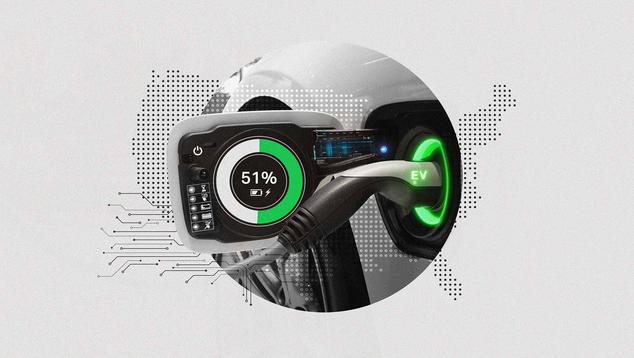Story Highlights
- 51% in U.S. open to EVs, matching 2024 but down from 59% in 2023
- Democrats still more interested than Republicans in EVs, but by lesser amount
- Hybrids appeal to 65%, elevated by more interest from upper-income consumers
WASHINGTON, D.C. — The percentage of Americans who either own or express interest in owning an electric vehicle decreased from 59% in 2023 to 51% in 2024 and remains at the reduced level today.
Fifty-one percent of U.S. adults report that they already own an EV (3%), are seriously considering buying one (8%) or might consider buying one in the future (40%). That leaves 47% saying they would not buy one, similar to the 48% a year ago but up from 41% in 2023.
The most eager electric vehicle supporters — those who say they own one or are seriously considering it — declined to 11% this year from 16% in 2024. While statistically significant, the reason for the decline isn’t clear. It is more pronounced among upper-income and young adults but occurred among Democrats and Republicans.
The most recent results are from Gallup’s annual Environment survey, conducted March 3-16. The poll coincided with mounting protests and acts of vandalism against Tesla electric vehicle products and facilities, prompted by opposition to Tesla CEO Elon Musk’s leadership of the Department of Government Efficiency. President Donald Trump’s purchase of a Tesla car on March 11, which reportedly led to a $56 billion increase in the company’s stock, occurred toward the end of the field period.
In addition to gauging Americans' interest in electric vehicles, the latest survey included a new question measuring public preferences for hybrid vehicles. Hybrids, which run on both gasoline and electric power, may have gained appeal because they address concerns people have about the reliability of driving and charging fully electric vehicles.
Sixty-five percent of U.S. adults either own a hybrid vehicle (8%), are seriously considering buying one (10%) or are open to buying one in the future (47%). Interest in hybrids exceeds EVs in both current ownership (8% vs. 3%, respectively) and potential buying (57% vs. 48%).
Step Back From Electric Vehicles Is Broad-Based
Most subgroups of Americans became less likely in 2024 to indicate that they own an EV, are seriously considering buying one or might consider it in the future, and many of those patterns remain in place today. Still, some groups’ affinity for EVs has declined more than others.
- The groups most likely to express interest in EVs in 2023 — Democrats, liberals, young adults, college graduates, and residents of the West — are (except for liberals) the ones that have shown the biggest declines.
- Despite this, political liberals (78%) and Democrats (71%) remain the most likely of all major demographic and political subgroups reviewed to be current or prospective electric vehicle consumers. This contrasts with 32% of conservatives and 31% of Republicans.
- Also, despite reduced interest since 2023, young adults (those aged 18 to 34), college graduates, middle- and upper-income Americans, and residents of the West remain more inclined than their counterparts to have their eye on EVs.
Hybrid Vehicles Pull Republicans Into the Electric Car Market
Americans’ greater interest in owning a hybrid than owning a fully electric car is seen across demographic and party subgroups. But affinity for hybrids over EVs is particularly elevated among Republicans (24 percentage points higher, at 55%) and conservatives (19 points higher, at 51%). This puts these groups closer to the national average for interest in hybrid vehicles compared with their interest in EVs.
Older Americans are much more likely to say they’d consider buying a hybrid car than an EV, creating a much smaller age gap with young adults on hybrid cars than is seen on EVs.
By contrast, differences by income are wider for hybrid vehicles than for EVs, the result of middle- and upper-income Americans showing significantly more interest in hybrids than they do in EVs. Seventy-four percent of Americans earning $100,000 or more in annual household income say they own or might like to own a hybrid vehicle, compared with 56% who say the same about EVs. Similarly, 72% of those earning between $50,000 and $99,999 a year indicate a desire to own hybrid cars, versus 53% for electric. Meanwhile, just under half of Americans earning less than $50,000 are interested in either electric vehicles (47%) or hybrids (48%).
Bottom Line
Americans’ modestly reduced interest in ever owning an electric vehicle predates the recent publicity challenges facing Tesla, the biggest player in the EV market. Still, while the decline measured in 2024 may have reflected practical concerns, the continuation of attitudes at that lower level may reflect recent political ones.
With Democrats and liberals being much more likely than Republicans and conservatives to believe electric vehicles help address climate change, it stands to reason that Democrats and liberals continue to express greater interest in owning EVs. Other groups maintaining relatively high EV interest include young adults, college graduates, and those living in the West.
Hybrid vehicles attract broader interest from Americans, partially driven by strong interest among middle- and upper-income adults — but also by Republicans and conservatives showing markedly greater interest in this technology than they do in electric-only vehicles.
To stay up to date with the latest Gallup News insights and updates, follow us on X @Gallup.
Learn more about how the Gallup Poll Social Series works.
View complete question responses and trends (PDF download).




